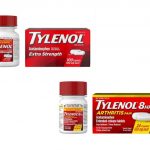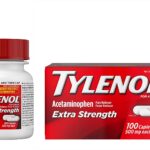Can I Alternate Tylenol And Motrin?

Pain is an uncomfortable feeling that tells you something may be wrong. It can be steady, throbbing, stabbing, aching, pinching, or described in many other ways. Sometimes, it’s just a nuisance, like a mild headache. Other times it can be debilitating.
Everyone feels some kind of pain from time to time. Pain is the most common symptom of potentially thousands of injuries, diseases, disorders, and conditions you can experience in your lifetime. It can also result from treatments for conditions and diseases. Pain can last a short time and go away when you heal (acute pain). Or it can also last for months or years (chronic pain).
Depending on the cause and type of pain, it may not be possible to find total relief, and the pain may not get better right away. Your provider will work with you to adjust your pain management plan so you can feel better.
In this article, we shall be looking at Tylenol and Motrin two very common medications used in the management of pain and related conditions.
What is Tylenol?
Tylenol is a brand of acetaminophen a medication commonly used to treat minor aches and pains, including headache, backache, minor pain of arthritis, toothache, muscular aches, premenstrual and menstrual cramps. It is also commonly used to temporarily reduce fever.
Tylenol is in a class of medications called analgesics (pain relievers) and antipyretics (fever reducers), they work to relieve minor aches and pains by elevating the body’s overall pain threshold so you feel less pain, and lower your fever by helping your body eliminate excess heat.
The recommended or standard dose of Tylenol for adults and teenagers who weigh at least 110 pounds (50 kilograms is 1000 milligrams (mg) at one time and a maximum of 4000 mg in 24 hour period. Children younger than 12 years old should not take extra-strength Tylenol and more than 5 doses of acetaminophen in 24 hours.
It is strongly advised that persons taking Tylenol should avoid using other medicines that contain acetaminophen because it can result in an overdose which could be fatal. Take Tylenol exactly as directed on the label, or as prescribed by your doctor. An acetaminophen overdose can damage your liver or cause death.
What is Motrin?
Motrin is a brand of ibuprofen, a medication used to relieve pain from various conditions such as headaches, dental pain, menstrual cramps, muscle aches, or arthritis. It is also used to reduce fever and to relieve minor aches and pain due to the common cold or flu.
Motrin belongs to a class of medications called nonsteroidal anti-inflammatory drug (NSAID). It works by blocking your body’s production of certain natural substances that cause inflammation. This effect helps to decrease swelling, pain, or fever.If you are treating a chronic condition such as arthritis, ask your doctor about non-drug treatments and/or using other
The recommended dose of Motrin for adults is 800 milligrams per dose or 3200 mg per day (4 maximum doses). A child’s dose is based on the age and weight of the child. Carefully follow the dosing instructions provided with children’s ibuprofen for the age and weight of your child. Ask a doctor or pharmacist if you have questions. Take ibuprofen with food or milk to lessen stomach upset. Use ibuprofen exactly as directed on the label, or as prescribed by your doctor. Use the lowest dose that is effective in treating your condition.
Can I Alternate Tylenol And Motrin?
Yes, it is safe to alternate Tylenol and Motrin, especially in people who require extra pain relief, such as for a dental extraction but experience some stomach or abdominal pain when taking the two medications together.
For example, you could take Motrin first, followed by Tylenol four hours later, and then repeat this process as needed. Tylenol and Motrin together work better to relieve pain than taking ibuprofen and acetaminophen separately. However, do not take aspirin and Motrin within 8-12 hours of each other.
Traditionally, most pain management experts recommend a stepwise approach to pain management, starting with acetaminophen or NSAIDs, then progressing to a weak opioid (such as codeine, dihydrocodeine, or tramadol), before changing to a strong opioid (such as fentanyl, morphine, oxycodone).
Common side effects of Tylenol And Motrin
Common side effects of Tylenol include:
• nausea,
• stomach pain,
• loss of appetite,
• itching,
• rash,
• headache,
• dark urine,
• clay-colored stools,
• or jaundice (yellowing of skin or eyes).
Common side effects of Motrin include:
• stomach pain,
• constipation,
• diarrhea,
• bloating,
• gas,
• heartburn,
• nausea,
• vomiting,
• dizziness,
• headache,
• nervousness,
• skin itching or rash,
• blurred vision, or
• ringing in the ears.
Tylenol and Motrin may cause other side effects. Call your doctor if you have any unusual problems while you are taking this medication.
If you experience a serious side effect, you or your doctor may send a report to the Food and Drug Administration’s (FDA) MedWatch Adverse Event Reporting program online (http://www.fda.gov/Safety/MedWatch) or by phone (1-800-332-1088).





